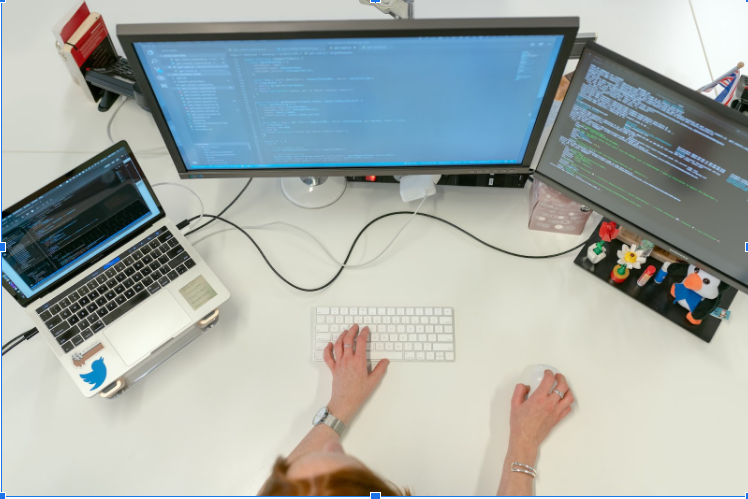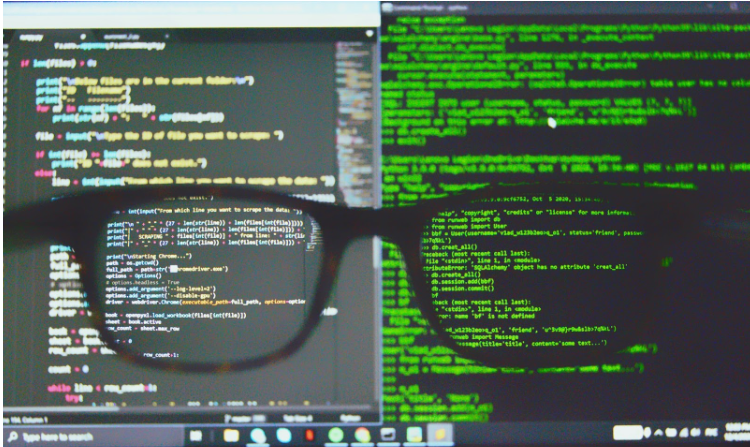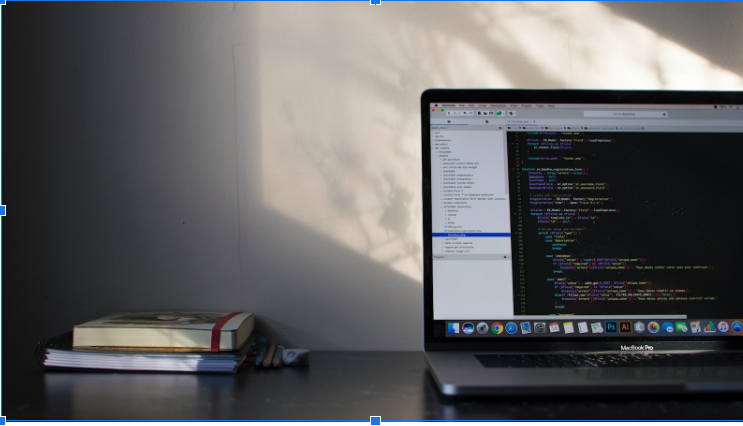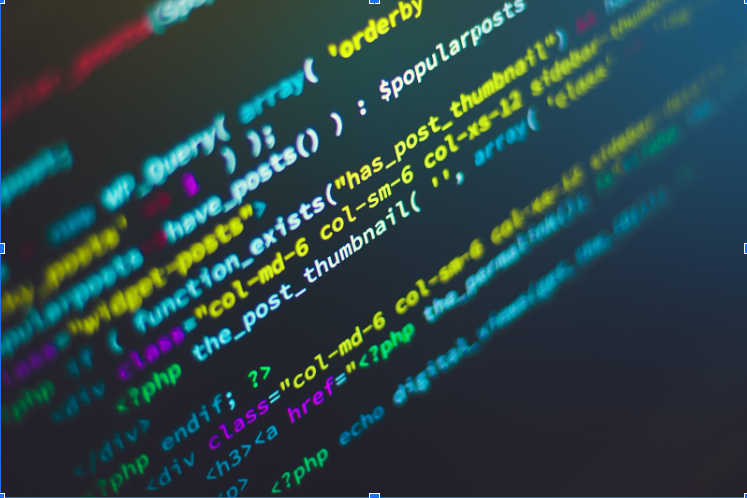How Long Does It Really Take to Learn Python in 2023?
Coding and programming are essential skills in the modern world, as they allow us to create powerful applications and software that can be used to solve complex problems. And for many software developers, Python is the programming language of choice.
Python is a popular programming language that is widely used in many different fields, from web development to machine learning. It is well known for its readability and ease of use, which makes it a great choice for those just starting out with programming. This language also has a large library of modules and packages that allow developers to quickly build powerful applications without having to invest too much effort.
For some, learning Python may appear like a daunting task, but with the right resources and dedication, be sure that you’ll manage to do it. Learning this language requires some time and practice, but it doesn't have to take years.
If you’re wondering ‘How long does it take to learn Python?’, you’ve come to the right place. This guide explains in detail how much time you need to learn Python, how to go through the process of learning, what are some common mistakes in the learning process, as well as what are the benefits of learning Python.
How Long to Learn Python?
With a couple of hours of study each day, you can learn the basics of Python in a relatively short time and then upgrade your knowledge over time. So, how long does it take to learn Python? As a rule of thumb, we could say that learning Python basics can take anywhere between 5-10 weeks.
In the beginning, you need to understand basic concepts such as variables, functions, classes, and loops before you can move on to more advanced concepts like object-oriented programming and data structures.
Keep in mind that nobody can tell you exactly how long it will take you to master Python, as the amount of time required depends on a variety of factors:
- Your prior programming experience. If you have prior knowledge of other programming languages such as Java or C++, you may be able to pick up Python more quickly than a complete beginner.
- Level of dedication. Needless to say, the more dedicated you are, the faster you’ll learn Python.
- Type of learning environment. Even though it may be a more affordable option, teaching yourself to code is a longer process than if you worked with a personal tutor or in a classroom setting.
- Task complexity. If someone is attempting to build a complex web application from scratch using Python, it may take them longer than someone who is simply writing small scripts.
How to Learn Python: Strategies for Success
The better prepared you are for learning Python, the easier the process will be. If you want to know how to start learning Python, these tips should help you make your journey much easier.
Set realistic goals
Before you begin your journey into Python programming, think about what you want to achieve and how much time you actually have available. This will help you to stay focused and motivated throughout the process.
Create a timeline
Establishing a timeline for yourself is important for anyone learning a new skill or language, including those who want to know how to start learning Python. Set learning goals on how much of the material you want to cover in a certain amount of time.
Start with the basics
Don’t try to tackle too many concepts at once. Instead, start small and build up your skills gradually as you become more comfortable with the language. Tackle one concept at a time until you feel confident enough to move on to something more challenging.
Before diving into complex projects, start by getting familiar with the basics of Python. Learn how to write basic commands such as printing strings, assigning variables, and creating loops. This will give you a foundation for understanding more advanced concepts later on.
Familiarize yourself with the language
Another useful tip is to familiarize yourself with the language as much as you can. Read up on the basics of Python programming and get comfortable with its syntax and structure before diving into more complex topics.
Hire a tutor
Working with a tutor can be a great way to stay motivated while learning Python since it provides structure and guidance throughout the process. Take a look at the actual cost of hiring a tutor to know how it fits your budget.
Practice writing code regularly
The best way to learn any skill is through practice, so make sure that you dedicate some time each day or week to practicing coding in Python. This way, you’ll reinforce what you’ve learned and apply it in real-world scenarios.
Try out different commands in an online IDE or text editor and see what happens when you run your code. This will help you get comfortable with the syntax of Python and understand how different lines of code fit together.
Test your knowledge
Once you’ve gained a solid understanding of the language, test yourself with practice exams or coding challenges to gauge your progress.
Keep learning
Learning Python also means keeping up with the latest trends, such as new libraries or frameworks. Therefore, make sure to update your skillset so you can stay ahead of the game.
Take online courses
There are many online courses available that teach Python from beginner to advanced levels. These courses often include video lectures, quizzes, and coding challenges that can help reinforce what you've learned.
Work on projects
Once you have a good grasp of Python, try working on some projects of your own. You can find project ideas online or come up with something on your own that interests you. Working on projects is a great way to practice problem-solving in Python while also developing real-world skills that employers look for in software engineers.
Learning Resources
There are numerous online resources available that can help you learn Python quickly and effectively. But with so many resources, it can be difficult to know where to start.
You can look for written and video tutorials, online courses, and books, but you can also take advantage of online communities and forums to get feedback or help when you need it. These are some of the top online resources to help you get started with Python programming.
24HourAnswers
Our Python homework help and tutoring program is our top pick for a reason. You can get help with your homework or simply work with a tutor to advance your skills. Best of all, you can send a request anytime, 24/7.
Our Python programming tutors have admirable knowledge of this coding language and they’re highly qualified to provide help or instructions on the topic.
The process is straightforward:
- First, you should submit a general tutoring request or your homework problem on our website.
- One of our online Computer Science tutors will respond as soon as possible (sometimes within minutes).
- Now you can work with your tutor to get help with your homework or answer your question.
Codecademy
Codecademy offers an interactive platform for learning Python. It provides step-by-step instructions and allows you to practice coding as you go along. The course covers the basics of Python programming and also includes more advanced topics such as object-oriented programming and working with APIs.
Google's Python Class
This is a free online course designed for experienced programmers who want to learn how to use Python. It includes video lectures, slides, quizzes, exercises, and other materials that will help you understand the fundamentals of the language.
Microsoft's Introduction to Python Course
This is a comprehensive guide for beginners who want to learn how to program in Python. It covers all of the basics of the language and provides hands-on exercises so that you can practice what you've learned.
Udemy
Udemy offers a wide range of courses related to programming in Python. From introductory courses aimed at beginners to more advanced courses on topics such as data science and machine learning, Udemy has something for everyone looking to learn about this popular language.
Python.org
This is the official website for Python, providing tutorials, documentation, and downloads. It's a great place to start if you're new to programming with Python.
LearnPython.org
This website offers a comprehensive tutorial that starts with the basics but also covers more advanced topics like software deployment.
YouTube
Finally, there are many YouTube channels dedicated solely to teaching people how to program in Python. You can watch videos from the beginner level right through to advanced topics such as machine learning or artificial intelligence.
Common Mistakes to Avoid When Learning Python
As a beginner in Python, you may be tempted to take some shortcuts, but this can take you down the wrong path. That’s why it’s important to be aware of the common mistakes that can occur when writing code in Python.
Not following the rules
Python has specific syntax rules that must be followed for code to execute properly. Failing to follow these rules can lead to errors and unexpected results. Do your best to understand the syntax and use it correctly.
Misusing expressions
Expressions are used in Python to evaluate values and assign variables. Misusing expressions can lead to incorrect results or errors in your code. Make sure you understand how each expression works before using it in your code.
Modifying and iterating a list
When iterating over a list, make sure not to modify the list while doing so. Instead, create a new list with the modified items and use that instead of modifying the original list while iterating over it.
Not closing a previously opened file
If you open a file for reading or writing, make sure you close it after you’re done with it. Leaving an open file can cause memory leaks or other issues with your program.
Inconsistency with parentheses or brackets
Parentheses and brackets are used for grouping statements together in Python so they must be used consistently throughout your program for it to execute properly.
Benefits of Learning Python
There are numerous reasons why Python is so popular among developers. It’s a powerful and versatile programming language, and learning it can provide you with many benefits.
Increased productivity
Python is an easy-to-learn language with a simple syntax that makes it easier to write code quickly and efficiently. This means you can get more done in less time. Its interpreted nature allows for faster debugging of code while its dynamically typed feature makes it easier to write programs.
Enhanced career opportunities
With the increasing demand for skilled Python developers, learning Python can open up new job opportunities in tech companies or help you advance in your current role.
Accessibility
Python is an open-source language which means it’s free to use and modify, making it accessible to everyone regardless of their budget or technical background. Moreover, its extensive support libraries and open-source community development can be extremely helpful for beginners or even later in your journey as a developer.
Versatility
Python has a wide range of applications, so you can use it for almost any project you have in mind. It can be used for web development, computer graphics, finance and trading, basic game development, security and penetration testing, and much more.
It’s Time to Start Learning Python
Having read this guide, you hopefully got the answer to your question ‘How long does it take to learn Python?’ and much more.
At first, learning Python may seem too difficult or even impossible, but rest assured that the basics of Python are easy to learn. The simple syntax and intuitive structure of the language make it ideal for beginners.
With the right resources and guidance, anyone can learn Python and become proficient in its use. There are numerous websites, online tutorials, books, and courses available to help you get started on your learning journey.
You can also find coding challenges online or create your own projects to work on at home. As you progress through the learning process, make sure to take advantage of any opportunities that come up to use your new programming skills in real-world applications or build something interesting with them.
It's important to remember that learning any new skill takes time and effort, and Python is no exception. With dedication and practice, you will soon be able to write your own programs in Python.
If you have any questions or need further help with Python, we’ll be happy to help. 24HourAnswers online tutors are there to help with assignments and homework whenever you need them.



